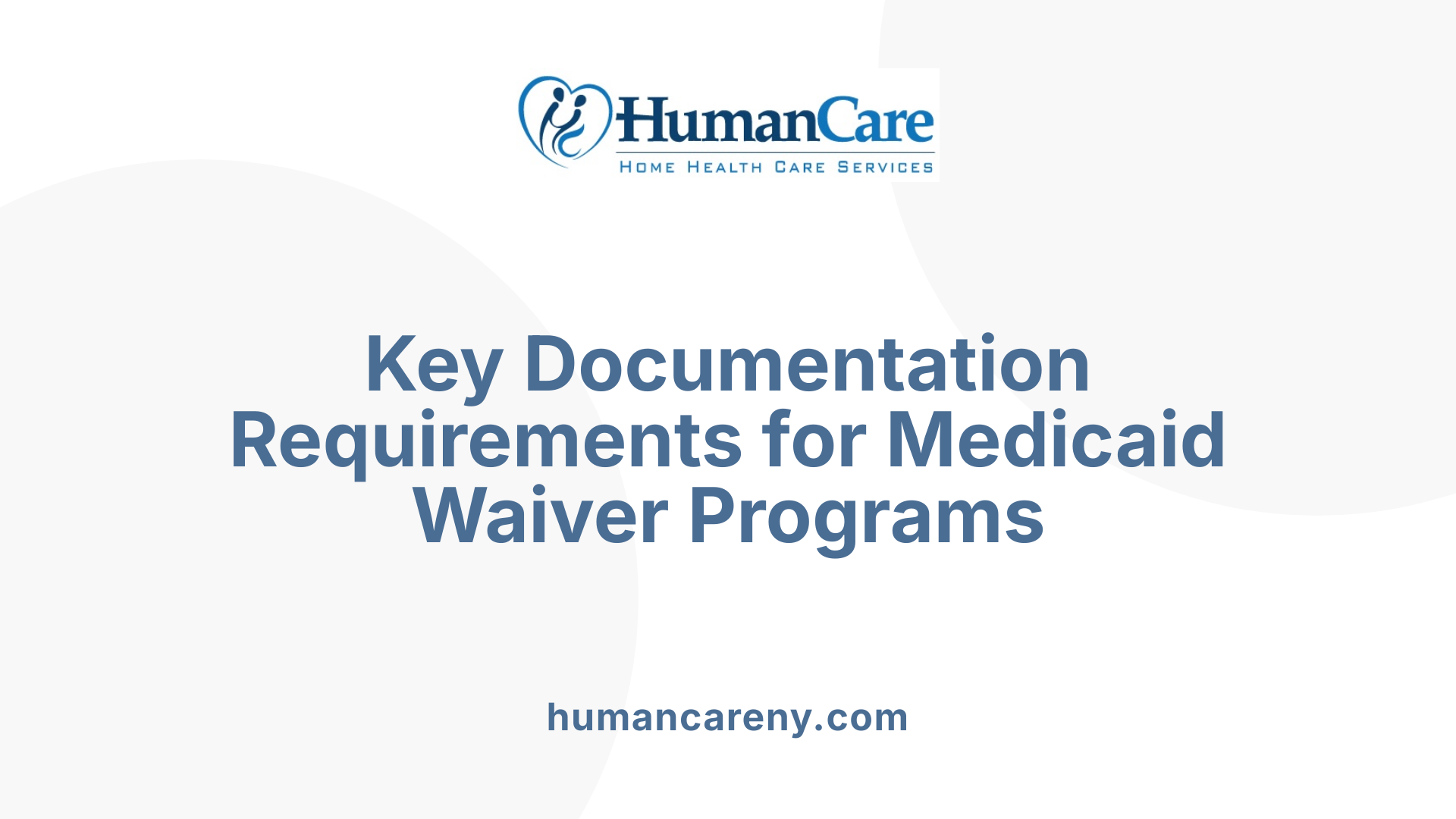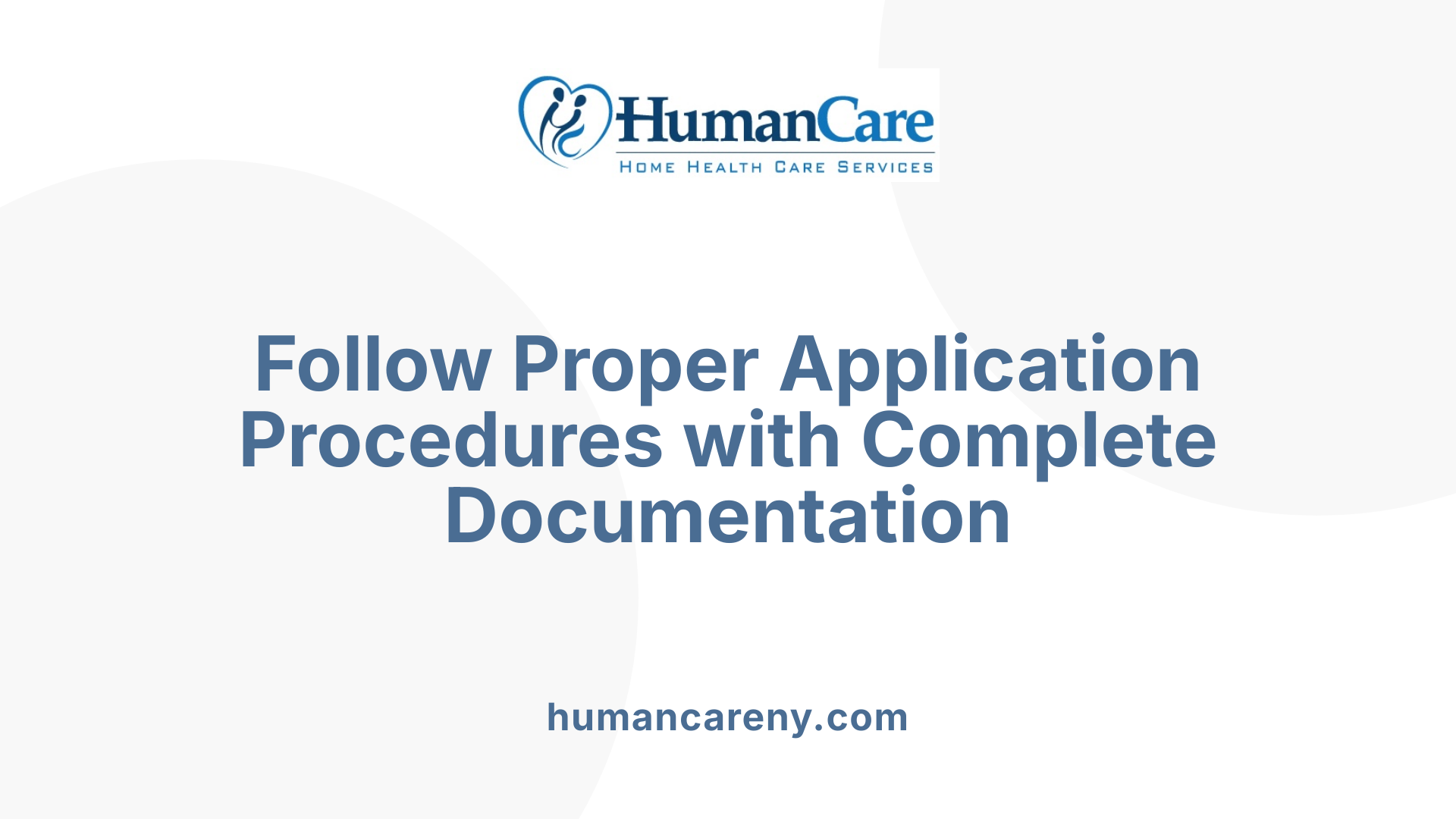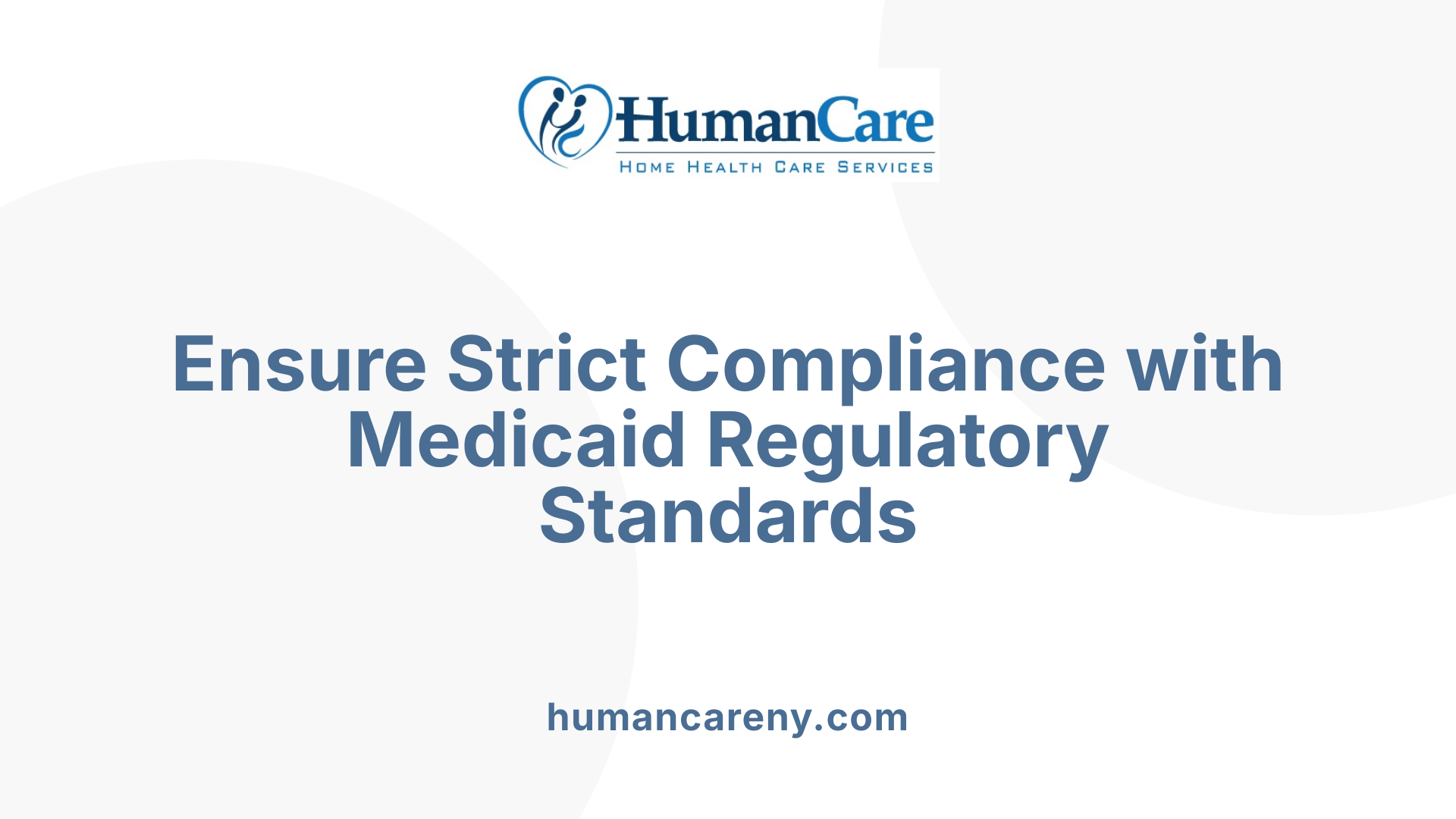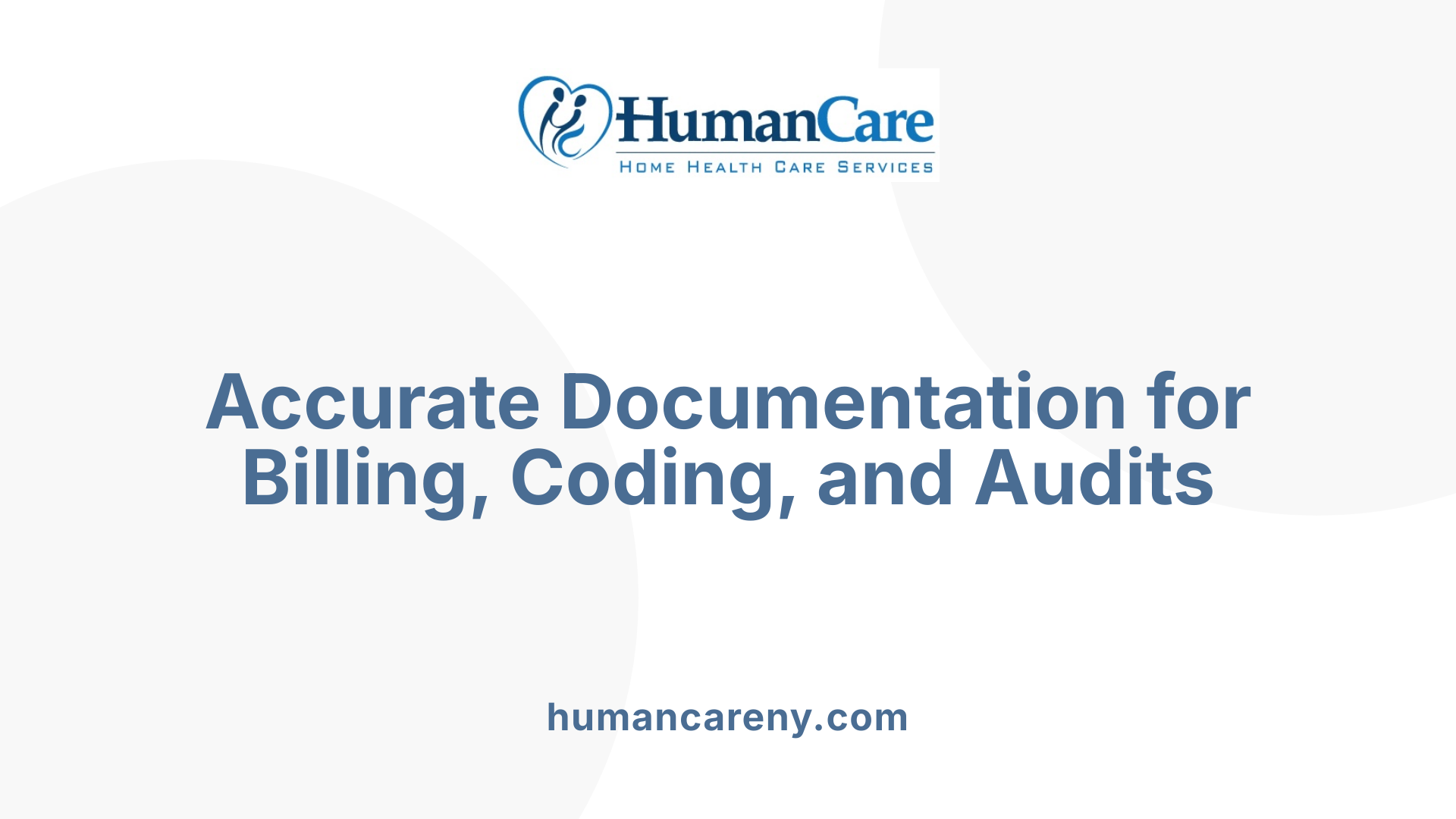Understanding the Foundation of Proper Documentation
Medicaid waiver programs, such as those administered under Medi-Cal in California, are complex initiatives designed to offer personalized care to eligible populations. The cornerstone of successful participation in these programs is meticulous documentation that demonstrates compliance, accountability, and the delivery of quality services. This article delves into essential aspects of Medicaid waiver program documentation requirements, outlining necessary standards, procedures, and best practices to ensure providers remain compliant and engaged in continuous quality improvement.
Overview of Medicaid Waiver Program Documentation Requirements

What are the general documentation requirements for Medicaid waiver programs?
Maintaining proper documentation is essential for Medicaid waiver programs to ensure compliance, enable reimbursement, and support audits. Applicants or recipients must submit proof of eligibility, which includes documents such as identification, proof of residence, income statements, and verification of disability or specific health conditions.
Providers are responsible for keeping detailed records of all services provided. These include accurate service plans, progress notes, and attendance logs, which demonstrate that services are medically necessary and aligned with each person's individualized plan of care. All entries in medical and service records should be signed and dated by authorized personnel, clearly legible, and unaltered.
Service coding is vital; providers must ensure that billing codes (like HCPCS and CPT codes) match the services delivered and are in line with what is documented in the care plan. These service records should also contain physician orders, care assessments, and other supporting documents showing that the services meet both federal and state regulations.
Certification of provider credentials and ongoing staff training is also required. Staff must maintain up-to-date licenses, certifications, and training records, which must be available for review at any time. Compliance with additional requirements such as Electronic Health Records (EHR) use and Electronic Visit Verification (EVV) can further streamline documentation processes.
Accurate and complete documentation is especially critical when submitting claims. Supporting documents for billing should include detailed service logs, care plan documentation, and progress notes. Proper record-keeping not only supports reimbursement but also helps to demonstrate adherence to specified protocols and person-centered planning.
In summary, providers must establish comprehensive, organized, and compliant documentation practices that include verification of eligibility, detailed service records, provider credentials, personalized care plans, and billing support documents. Keeping these records current and accurate safeguards against denials, penalties, and audits, maintaining the integrity and sustainability of Medicaid waiver services in California.
Eligibility and Application Process Documentation

What are the eligibility criteria and necessary documentation for Medicaid waivers?
Eligibility for Medi-Cal waiver programs in California involves meeting certain medical and functional standards. Applicants must generally demonstrate that they require a level of care comparable to inpatient services in a hospital, nursing facility, or other institutional setting. This typically requires assessments to establish the need for services such as skilled nursing or personal care.
In addition to medical needs, financial eligibility is essential. Income and resource limits vary depending on the specific waiver and target population. For example, some individuals may qualify through Modified Adjusted Gross Income (MAGI)-based rules, while others, such as those with disabilities, may qualify via Supplemental Security Income (SSI)-based criteria. Certain medically needy or spend-down options may also apply.
Residency is a key requirement—applicants must be residents of California and usually fall under specific age or disability categories to qualify for particular programs.
The necessary documents for this process include proof of income, which could be recent pay stubs or tax returns. Medical documentation, such as disability certifications or detailed medical records, are also required to verify health conditions and care needs. Identity verification and proof of California residency like a driver’s license, utility bills, or rental agreements are typically mandated.
In many cases, applicants need to undergo assessments or evaluations by authorized program personnel to determine their eligibility based on their medical circumstances and ability to meet the defined criteria. These assessments help confirm the level of care needs and the appropriateness of the waiver services.
Additional supporting documentation may include written statements from healthcare providers, nursing assessments, or other certifications that help demonstrate an applicant’s eligibility for specific waiver populations, such as the elderly or developmentally disabled.
Overall, the process is designed to ensure that services are directed to those with the most appropriate need while verifying that all required criteria are comprehensively documented to prevent misuse and to qualify for Medicaid waiver benefits.
Application Procedures and Required Documentation

How does the application process for Medicaid waivers work, and what documentation is needed?
Applying for Medi-Cal waiver programs involves several steps that ensure the applicant qualifies for services tailored to their specific needs. The process typically starts by contacting local county Medicaid offices or designated waiver agencies. These offices assist individuals in requesting the necessary applications, such as the DHCS 1320 form, which initiates the eligibility review.
Applicants need to establish Medi-Cal eligibility by providing documentation like income verification, medical records, and proof of disability or age, depending on the waiver criteria. They may also be assessed through evaluations conducted by program administrators to determine the level of care needed and whether they meet the specific waiver requirements.
Providers interested in offering waiver services must complete several application forms, including the DHCS 6204, 6207, and 6208, which verify their qualifications and compliance standards. Supporting credentials such as proof of business registration, license, insurance, and staff qualifications are required. Additionally, providers must demonstrate adherence to health and safety regulations through documentation like facility inspections, staff background checks, and safety certifications.
Ongoing application and renewal procedures include maintaining accurate records, reporting any changes in circumstances, and passing periodic inspections or audits. Providers and recipients are required to update their documentation regularly to ensure continuous compliance and eligibility.
The entire process emphasizes thorough documentation—from initial application through ongoing compliance—to ensure that individuals receive appropriate support while upholding Medicaid and state standards. Accessing and submitting the correct documentation at each stage is vital for securing and maintaining waiver services.
Regulatory Standards and Ongoing Compliance

What are the compliance and regulatory documentation standards for Medicaid waiver programs?
Medicaid waiver programs, including California's Medi-Cal waivers, are governed by strict federal and state regulations that ensure participant safety, program integrity, and quality of care. Providers must keep comprehensive documentation that is accurate, complete, and easily accessible for audits or reviews.
This documentation includes detailed service records, care plans tailored to individual needs, billing information, and staff qualifications. Orders, certifications, and incident reports must be properly documented to support claims and demonstrate adherence to care standards. Service delivery must meet the evolving regulations for Home and Community-Based Services (HCBS), Electronic Visit Verification (EVV) mandates, and proper billing procedures.
Maintaining a high standard of recordkeeping involves regular internal audits to detect and correct errors early. Staff must receive ongoing training on documentation requirements and compliance policies. Policies should be reviewed and updated annually or following regulatory changes to stay current.
Providers are also responsible for reporting any suspected fraud, abuse, or violations of program standards. Staying informed about updates from official sources like the California Department of Health Care Services (DHCS) is crucial. Implementing a robust quality improvement system and compliance management framework helps ensure continuous adherence.
Regular staff development, technological tools such as Electronic Health Records (EHRs) and Electronic Visit Verification (EVV), and adherence to established billing procedures are essential components of a successful compliance program. These measures help protect both providers and recipients, ensuring that services are delivered lawfully and effectively.
Documentation for Billing, Coding, and Audits

What documentation is required for billing, coding, and audits in Medicaid waiver programs?
Proper documentation is essential for ensuring accuracy in billing and compliance with Medicaid waiver regulations. It must include detailed records of all services provided, such as date, time, service type, and outcomes. These records should be clear, legible, and signed by authorized personnel. Providers are also required to maintain documentation establishing medical necessity, which includes physician orders, individualized care plans, and progress notes that reflect the recipient’s condition and care goals.
In addition to service content, accurate coding is critical. Healthcare providers must use current HCPCS and CPT codes correctly, including the appropriate modifiers that specify circumstances like telehealth or non-traditional service settings. Supporting documentation should justify the codes used and be aligned with the actual services delivered.
Claims for reimbursement must be supported by proper documentation to meet state and federal requirements. This includes service logs, Electronic Visit Verification (EVV) records, and detailed progress notes. Records should evidence that services are provided per the person-centered plan and are medically necessary.
For audits and inspections, comprehensive records are vital. This includes not only service logs and EVV data but also staff credentials, certification records, and evidence of compliance with safety, privacy, and quality standards. Maintaining detailed documentation helps verify that services were delivered correctly and supports reimbursement claims.
Timely submission of claims is crucial. Providers should adhere to state-specific deadlines and retain records for at least three years, as required by regulations. Regular internal audits and ongoing staff training enhance compliance and help identify and correct issues proactively.
By following these documentation standards, providers can reduce audit risks, ensure proper reimbursement, and maintain the integrity of Medicaid waiver programs.
Maintaining the Integrity of Medicaid Waiver Documentation
Proper documentation is not only essential for securing reimbursement but also for safeguarding participant welfare and ensuring regulatory compliance in Medicaid waiver programs. Providers must develop robust systems for recordkeeping, staff training, and continuous monitoring. Staying updated with federal and state regulations, leveraging technological tools, and fostering a culture of accountability are vital for effective waiver program management. The ultimate goal remains to deliver high-quality, compliant, and person-centered care that meets all legal and operational standards, supported strong documentation practices.
References
- Medi-Cal Waivers - DHCS - CA.gov
- 1915(c) Home and Community-Based Services Waivers
- Home & Community-Based Services 1915(c)
- A Guide To Keep Your Waiver Services Compliant Amid ...
- Overview of Home and Community-Based Services
- Billing and Coding Best Practices for Waiver Program ...
- Medicaid waiver services documentation requirements
- State Waivers List
- Medi-Cal Waivers - DHCS - CA.gov
- California Step-by-Step Licensing Guide for Medicaid ...



